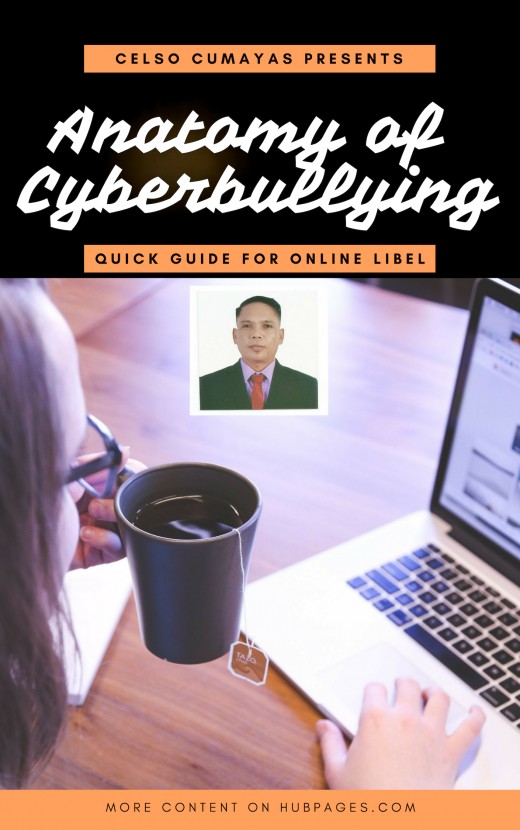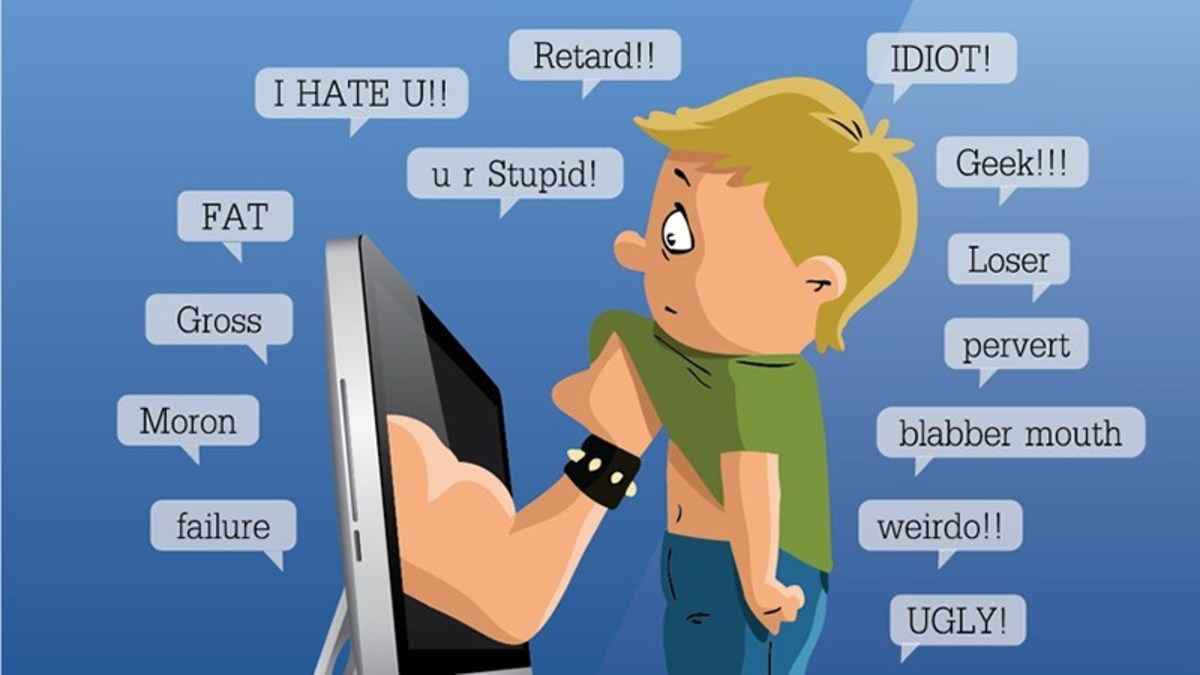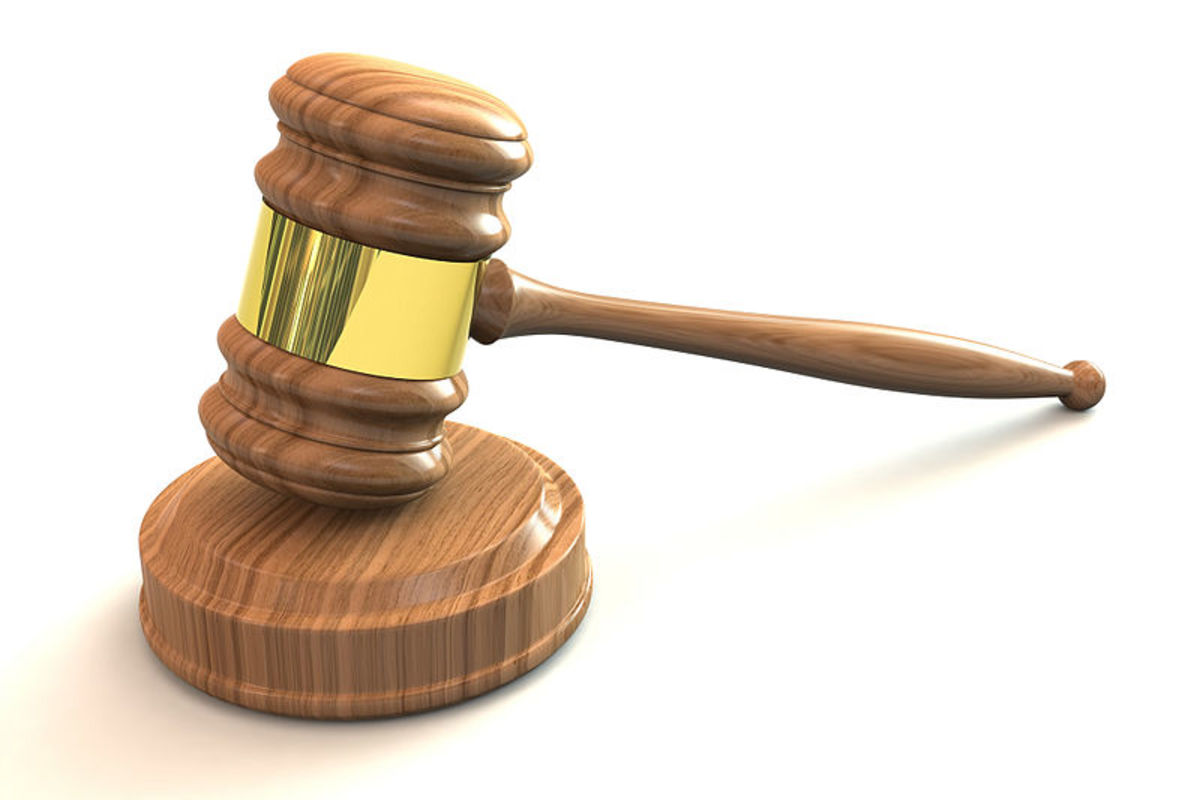Anatomy of Cyberbullying
Defaming someone using social media is a crime.

"Happiness is a choice! It's not a right, it's not also a privilege!"
In a digital world called worldwide web (www), even the reality of circumstances becomes now a virtual reality so to speak. Internet users around the globe are continuing to grow enormously in numbers every day. There are what do we call decent users but there are also users who are exploiting and oppressing others using the medium called cyberspace.
As far as I can remember, this year we have a first case on cyberbullying or online-libel filed by a private complainant at the Philippine Alternative Dispute Resolution Services, Inc. against a respondent for defamatory remarks posted by the respondent thru social media. The case was privately mediated and the private mediation was conducted by an ADR practitioner. The mediation proceedings went well and it only takes two sessions before the case was successfully settled and finally concluded by the signing of the compromise agreement. Both the private complainant and the respondent agreed to deposit the copy of the compromise agreement before the Office of the Clerk of Court of the Regional Trial Court upon payment of the corresponding P500 deposit fee for mediated settlement agreement pursuant to the Special Rules of Court on Alternative Dispute Resolution.
"Those who have less in life should have more in law" as they say. This is a cogent reason why government around the world should adopt a universal penal law regulating and punishing cyberbullying by considering it as a crime which needs drastic and appropriate legislative measures to curb these abuses on the internet. The question is what covers cyberbullying? Cyberbullying refers to “acts of cruelty committed using the Internet or any form of electronic media or technology that has the effect of stripping one’s dignity or causing reasonable fear or physical or emotional harm.”
Offensive acts on content-related offenses may include but not limited to the following:
a) Repeatedly sending offensive, rude and insulting message;
b) Distributing derogatory information about the victim;
c) Posting or sending offensive photos of the victim, whether these are digitally altered or not, or were taken with or without consent, with the intention to humiliate and embarrass the victim;
d) Breaking into an email, social networking or any electronic account and using the victim’s virtual identity to send, upload or distribute embarrassing materials to or about others;
e) Sharing the victim’s personal information or any embarrassing information, or tricking the victim into revealing personal or embarrassing information and sharing it to others; and
f) Repeatedly sending messages that include threats of harm or engaging in online activities that cause fear of the victim’s safety.
Four years ago, the Philippine legislature has successfully passed into law Republic Act No. 10175 otherwise known as the Cybercrime Prevention Act of 2012 with a legislative intent hopefully not to curtail the freedom of expression enshrined in the Bill of Rights but to regulate the commission of crime in cyberspace particularly the so-called "content-related offenses" specifically cyberbullying or online libel by defaming an internet user via any social media. This law being foreseen by legal luminaries as a threat to the well-protected freedom of expression have undergone one of the greatest legal battles in history. The Supreme Court made its pronouncement that there are portions and provisions of the law it declared unconstitutional, however, the law itself is declared constitutional by the high court under separability clause.
According to Justice Carpio in a separate concurring opinion in the case of Chavez vs Gonzales, G.R. No. 168338, February 15, 2008, "Freedom of expression is the foundation of a free, open and democratic society. Freedom of expression is an indispensable condition to the exercise of almost all other civil and political rights. No society can remain free, open and democratic without freedom of expression. Freedom of expression guarantees full, spirited, and even contentious discussion of all social, economic and political issues. To survive, a free and democratic society must zealously safeguard freedom of expression."
The passage of the new cybercrime law hopefully not only regulate the use of internet but also deter the commission of cybercrime in the cyberspace particularly the rampant violation on cyberbullying. The main distinction between the online-libel or cyberbullying and printed or paper libel is that online-libel has a greater penalty compared to printed libel under Art. 355 of the Revised Penal Code of the Philippines. Thanks to Atty. Raymond Fortun, one of the best criminal trial lawyer in the Philippines for sharing his insights and posted it on Facebook dissecting the law particularly in online-libel presented in a more understandable manner for public consumption than citing the law in toto.
In "Disini Jr. et al. vs. The Secretary of Justice" promulgated last February 18, 2014, the Supreme Court upheld the constitutionality of an increased penalty for online libel, specifically, one degree higher than for printed or 'paper' libel.
What does this mean, in layman's terms?
1. A person convicted of online libel shall be imposed a penalty of imprisonment ranging from SIX YEARS ONE DAY TO 10 YEARS (N.B. Printed libel has a penalty of 6 months and 1 day to 4 years and 2 months);
2. He CANNOT apply for probation; meaning, the accused is gonna be in jail for sure AND at the National Penitentiary in Muntinlupa even while the case is on appeal;
3. The prescriptive period for the offense increases to 10 years; meaning, a victim can sue for cyber libel in February 2026 for an online libel committed in 2016;
4. A person convicted of online libel is imposed the accessory penalty of 'temporary absolute perpetual disqualification'; meaning: (i) he shall be removed from public office immediately; (ii) he shall lose his right to vote during the period of his imprisonment; and (iii) he shall be disqualified to run for public office during the period of his imprisonment.
Under the law, the original author of the libelous content posted in the cyberspace such as social media is solely liable for such actions and not those who like, share or comment on such post or blogs.
While it is true that in a democratic country like the Philippines we can do what we want to do, say what we want to say but for as long as we did not violate any laws or rights of others, yes we can. It is noteworthy to say that even our rights guaranteed by no less than the Bill of Rights of our Constitution is not and will never become an absolute right especially the freedom of speech.
Thus, be a responsible netizen so that you can freely stay as citizens on the net without fear of being prosecuted.
© 2019 Celso Cumayas








